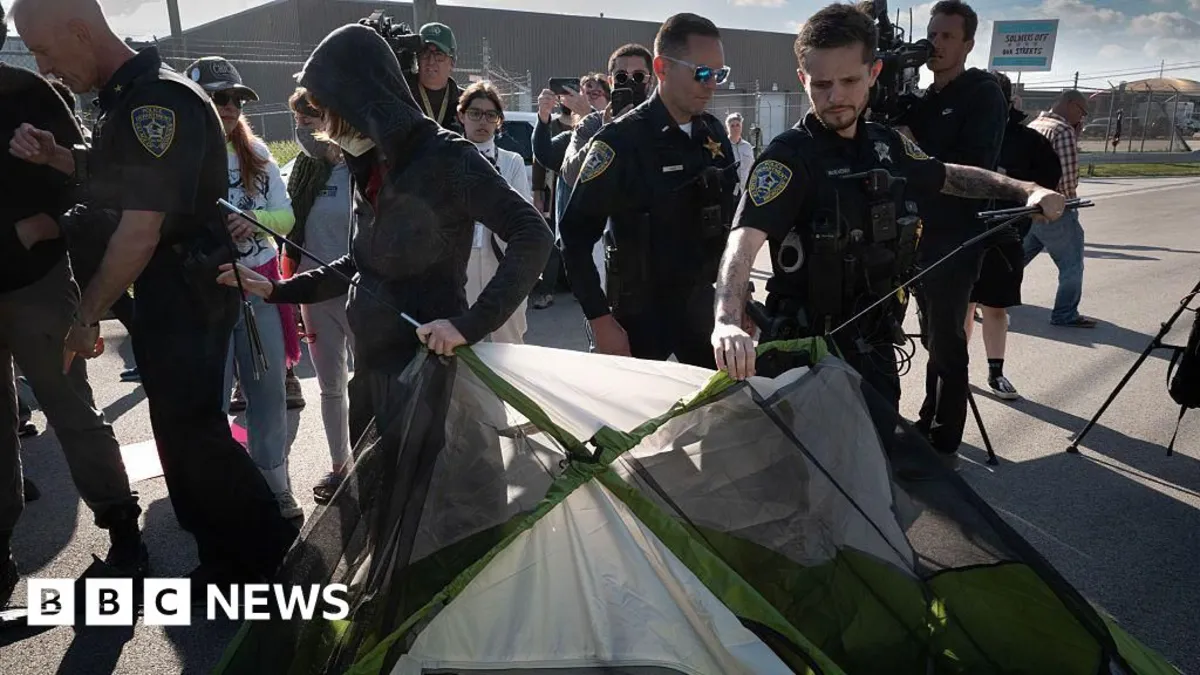
In the South Side of Chicago, the atmosphere is tense as residents grapple with crime, while the arrival of President Donald Trump's troops seems to be the last thing on their minds. Instead, many locals are engaged in a more profound struggle: a battle for the souls of the young. This community faces significant challenges, particularly in neighborhoods known for their high levels of violent crime.
During a visit to the neighborhood of Bronzeville, we observed the aftermath of a recent drive-by shooting where seven individuals were shot and wounded. This incident occurred just a block away from the Chicago Police Headquarters, highlighting the alarming prevalence of violence in the area. Over the Labor Day holiday weekend, at least 58 people were shot across the city, with eight fatalities reported, underscoring the urgent need for community intervention.
Rob White, a dedicated coach working with young men at risk of gang involvement, expressed the frustration felt by local residents. "You can imagine how the residents feel with this happening right under their nose," he remarked, referring to the shooting close to a heavily fortified police building. White's insights reflect the community's growing concern over public safety and the effectiveness of law enforcement.
Amidst the rising crime rates, President Trump announced plans to deploy National Guard troops to various US cities, aiming to combat crime without disclosing specific locations. In his comments, he alluded to the recent spike in violence, using Chicago's crime statistics as a justification for military intervention. However, Kanoya Ali, a colleague of Rob White, challenged the narrative presented by the President, stating, "The outcome, a drop in crime, is already happening. We are the troops." This sentiment reflects a growing belief in community-led initiatives to address crime.
Trump's reference to the violent crime statistics in Chicago has raised alarms among local leaders. Illinois Governor JB Pritzker described the President as "unhinged" for suggesting a military response to the city's crime issues. Despite the concerns voiced by state authorities, data indicates that violent crime in Chicago has significantly declined over the past two years. According to the Council on Criminal Justice, the homicide rate dropped by one-third between January and June compared to the previous year.
Superintendent Larry Snelling, head of the Chicago Police Department, provided further insight into the city's crime trends. He reported a decrease of 125 homicides last year and over 700 fewer shooting victims. However, he emphasized that the National Guard lacks police powers, stating, "They don't have the powers of arrest." He noted that any effective collaboration between law enforcement and the National Guard would require significant coordination.
In conclusion, the residents of Chicago's South Side are engaged in a critical fight against crime, focusing on community solutions rather than military intervention. As the debate continues, the emphasis remains on local efforts to create safer environments for the youth and the community at large.